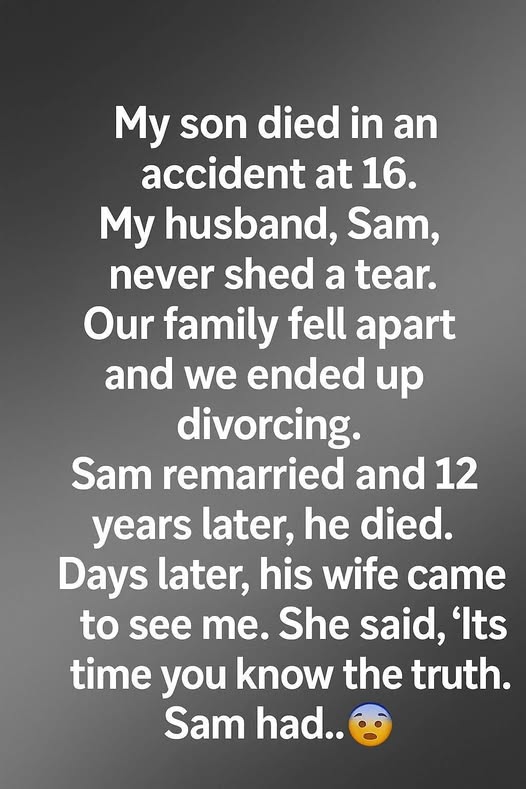When our 16-year-old son died in an accident, I felt like the world stopped spinning. Everything that made sense vanished overnight. The house that once echoed with his laughter became unbearably silent. What hurt even more was watching my husband, Sam, move through it all like nothing had happened. He didn’t cry at the hospital. He didn’t cry at the funeral. He didn’t cry when I fell apart night after night on the living room floor. He was calm, composed, and distant — like a man carved from stone.
At first, I told myself everyone grieves differently. Maybe he needed more time. Maybe the tears would come when he was ready. But as the weeks turned into months, his silence began to feel like indifference. He threw himself into work, leaving early and coming home late. When we did talk, it was about practical things — bills, errands, the bare minimum to keep life functioning. Every attempt I made to talk about our son, to share memories or pain, ended in awkward silence or a quick change of subject.
I began to resent him. I felt abandoned in my grief, like I was carrying both of our pain alone. Sometimes, I would scream into a pillow just to let something out — anything — while he sat in another room pretending to read the newspaper. I wanted him to break down, to shout, to cry, to show me that he felt the loss too. But he never did.
Continue reading next page…
